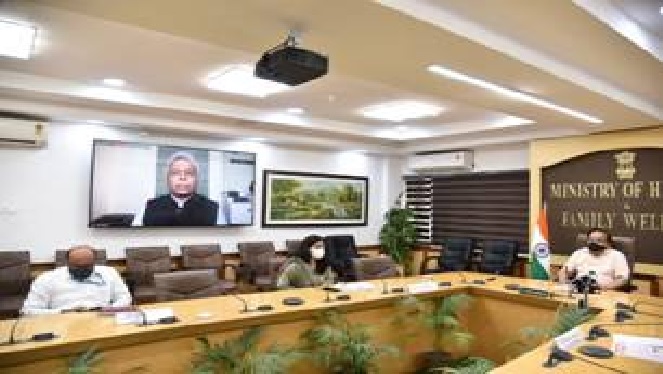Dr Harsh Vardhan, Union Minister for Health and Family Welfare chaired ICMR’s International Symposium titled ‘One Health in India: Research informing biosafety, preparedness and response’ through video conference today.He launched a special issue of ICMR’s Indian Journal of Medical Research which discusses the One Health approach, corroborating multisectoral research informing regarding biosafety, preparedness and response and has original articles, viewpoints, perspectives and reviews from the eminent experts in the field.The commencement of the constitution of a high-level steering committee for Eco Health Initiatives in India was also announced. This committee will have its secretariat hosted at the ICMR, and will also be supported by the upcoming National Institute of One Health which is planned to be set-up in Nagpur.

Speaking on the timely need for the event, the Union Health Minister said, “The whole world is grappling with the devastating effects of COVID-19. It is the need of the hour to brainstorm and find out ways for future emergency preparedness against emerging and re-emerging infections. With increased interaction between humans and animals – domestic and wild, and influenced by climate change, human health can no longer be seen in isolation. Our present COVID19 pandemic is more than a reminder of this fact.” He expressed hope that the steps envisaged would help avert the next pandemic.He took the occasion to remind the audience that it was the unwavering political commitment of India’s leadership led by Prime Minister Shri Narendra Modi which has ensured that India not only withstood the COVID crisis but also witnessed the most dynamic economic recovery worldwide.
Recognising the fact that the health of a population is closely connected to the health of animals and the shared environment, Dr. Harsh Vardhanexplained how this phenomenon increases zoonoses, the diseases that can pass between animals and people: “More people are today in closer and regular contact with wild and domestic animals, both as livestock and pets. This is both a result of human population growth as well as the expansion of human habitation into new geographic areas. There is a significant increase in human-animal interaction at the domestic level, particularly through the adoption of animals as pets, including otherwise non-domesticated species. Exotic food fetishes in many parts of the world and medicinal beliefs are also driving increased human entry into the animal space in the wild. The movement of people, animals, and animal products has increased from international travel and trade. As a result, diseases can spread quickly across borders and around the globe, unintentionally or otherwise. These changes have led to the spread of existing or known (endemic) and new or emerging zoonotic diseases. More than half of all infections that people can get can be spread by animals. Each year around the world, it is estimated that zoonoses (diseases shared between people and animals) cause 2.5 billion cases of sickness and 2.7 million deaths.”
The Minister ended his speech by congratulating his audience on the presence of experts cutting across disciplines and global thought leaders at the symposium.“This symposium is a start point for a broad-ranging, multi-stakeholder discussion and collaboration – to secure better health for all on this beautiful planet we call home”, he added.

Dr Balram Bhargava, Secretary, Health Research & DG, ICMR, Dr. K. VijayRaghavan, Principal Scientific Adviser to the Government of India, Dr G Satheesh Reddy, Secretary, Department of Defence R&D and Chairman,DRDO, Shri C.K. Mishra, Secretary, Ministry of Environment, Forest & Climate Change, Shri Atul Chaturvedi, Secretary, Animal Husbandry and Diary, Dr.Ashutosh Sharma, Secretary, Department of Science & Technology, Dr. Renu Swaroop, Secretary, Department of Biotechnology,Dr. Trilochan Mohapatra, Secretary, Department of Agricultural Research and Education& DG, ICAR, Prof Jeremy Farrar, CEO, Wellcome Trust, Dr Casey Barton, Director, One Health Office, CDC, Dr Aubrey Miller, NIEHS, USA, Dr Mark Schipp, Chief Veterinary Officer, Australiawere also present in the meeting.